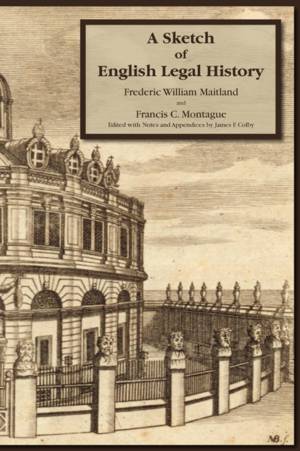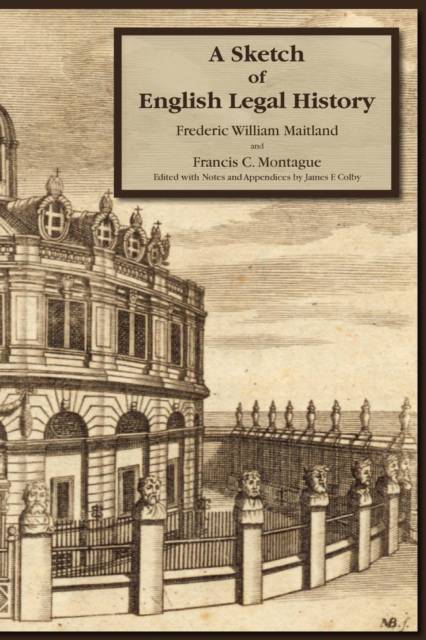
- Retrait gratuit dans votre magasin Club
- 7.000.000 titres dans notre catalogue
- Payer en toute sécurité
- Toujours un magasin près de chez vous
- Retrait gratuit dans votre magasin Club
- 7.000.0000 titres dans notre catalogue
- Payer en toute sécurité
- Toujours un magasin près de chez vous
13,95 €
+ 27 points
Description
"The Best Available Introduction to English Legal History" In this work Professor Colby has gathered, annotated and arranged into a sequential history of English law numerous essays by Frederic William Maitland and Francis C. Montague. Each chapter includes a list of recommended readings. These articles supplied what long had been needed for general readers and for law students-a brief but comprehensive, accurate but untechnical account of the origin and growth of English law. ... this series of articles now forms the best available introduction to English legal history. James F. Colby, iii Widely considered the father of legal history, Frederic William Maitland [1850-1906] was an English jurist and historian best known for the standard The History of English Law Before the Time of Edward I, 2 vol. (1895), written with Sir Frederick Pollock. He was educated at Eton and Cambridge and studied at Lincoln's Inn, London. Maitland was called to the bar in 1876, then practiced until 1884 when he became a reader in English law (1884) and professor (1888) at Cambridge. He founded the Selden Society in 1887. Hailed for his original outlook on history, his works profoundly influenced legal scholarship. An extraordinarily productive career was shortened by his death from tuberculosis at age 45. Francis C. Montague [1858-1935] was a Professor of History at University College, London and Lecturer in Modern History, Oriel College, Oxford. He was also the author of The History of England from the Accession of James I. to the Restoration (1907) and The Elements of English Constitutional History from the Earliest Times to the Present Day (1910). James F. Colby [1850-1939] taught international law at Yale Law School from 1883 until 1885. He later taught history and political economics at Dartmouth College, and was Parker Professor of Law and Political Science at Dartmouth College from 1885-1916 and lectured in jurisprudence and international law at Boston University Law School from 1905-1922. CONTENTS CH. I Early English Law, 600 A.D.-1066 CH. II English Law Under Norman Rule and the Legal Reforms of Henry II., 1066-1216 CH. III Growth of Law from Henry II. to Edward I., 1154-1272 CH. IV Legal reform under Edward I. and the System of Writs, 1272-1307 CH. V Growth of Statute and Common Law and Rise of the Court of Chancery, 1307-1600 CH. VI Completion of the Common Law and Statutory Reforms after the Restoration, 1600-1688 CH. VII The Supremacy of Parliament and Rapid Growth of Statute Law, 1688-1800 CH. VIII Growth of Statute Law and Legal Reforms in the Nineteenth Century APPENDICES INDEX
Spécifications
Parties prenantes
- Auteur(s) :
- Editeur:
Contenu
- Nombre de pages :
- 244
- Langue:
- Anglais
Caractéristiques
- EAN:
- 9781616190675
- Date de parution :
- 05-05-10
- Format:
- Livre broché
- Format numérique:
- Trade paperback (VS)
- Dimensions :
- 152 mm x 229 mm
- Poids :
- 362 g

Les avis
Nous publions uniquement les avis qui respectent les conditions requises. Consultez nos conditions pour les avis.






